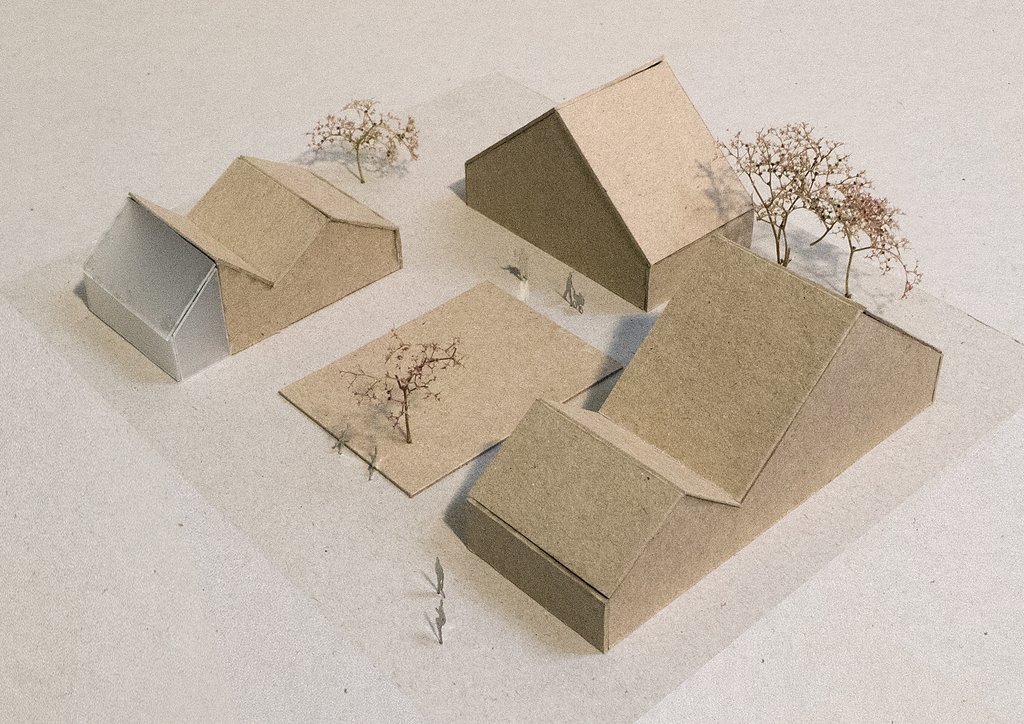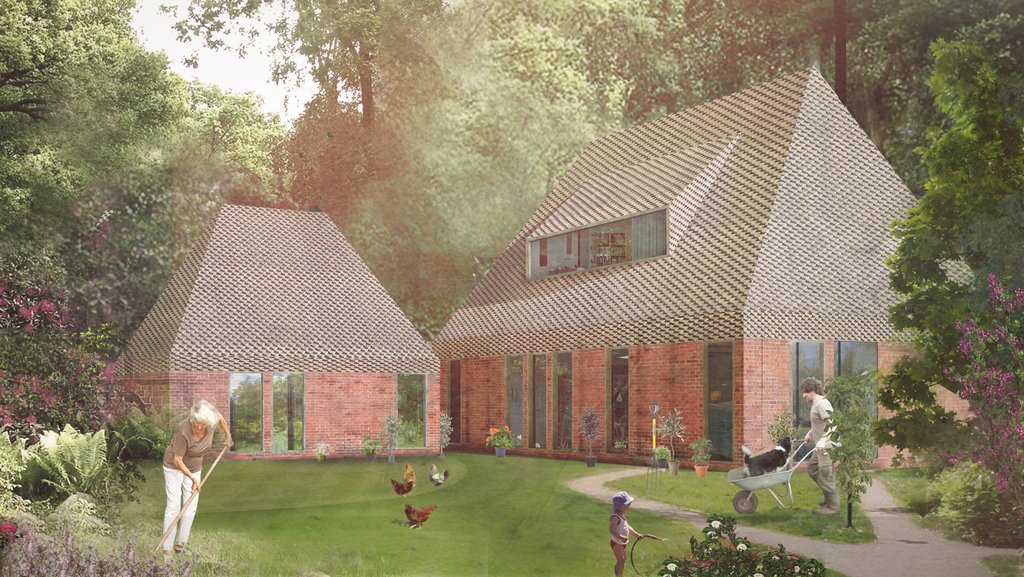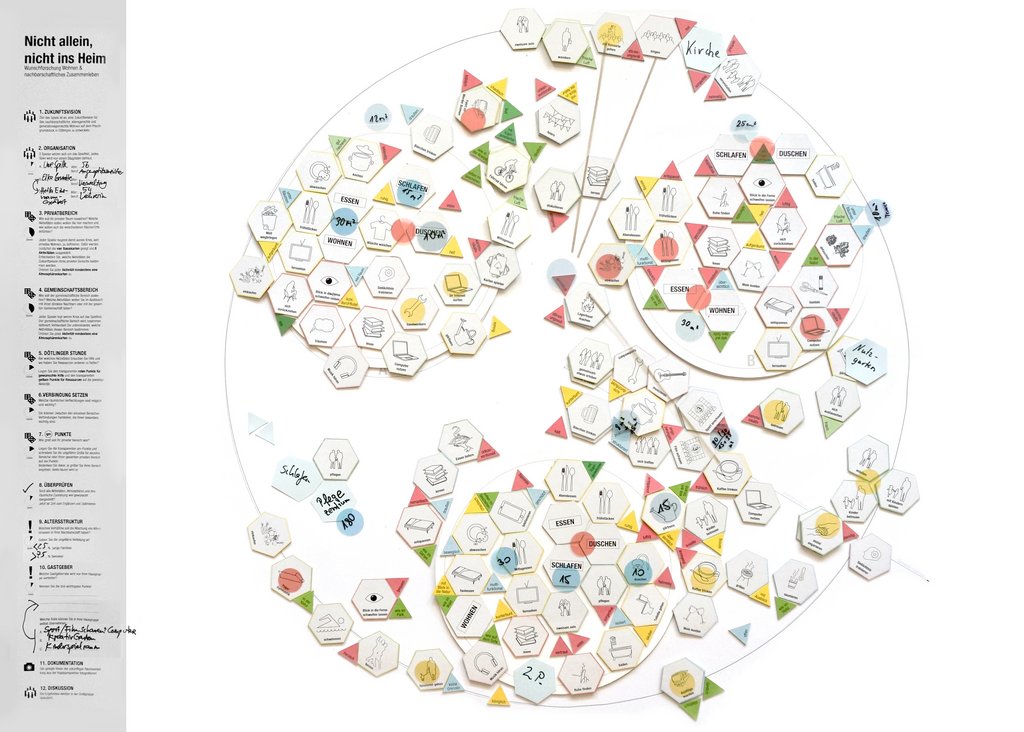Development of communal living concepts for seniors
Living in retirement in the country, Dötlingen



The municipality of Dötlingen in the rural district of Oldenburg has been focusing on the problem of demographic change and the possibility of providing apartments for older citizens. In a participatory process organised by the Institute for Participatory Design, a concept for living in retirement was worked out by a project group. As a result, the group developed an architectural vision for living in a cross-generational neighbourhood in the country. In order to implement the design, the “Wi helpt di” cooperative has been formed. The 10,000 m² site is located at the centre of the village, embedded in an area of open ground and detached houses. Under the motto “To the home – not alone”, a multi-generational housing development with 5 courtyards is to be created on a site of 1,620 m². It comprises 15 houses with 20 apartments, most of which are designed for senior citizens. The cross-generational housing typologies have been designed such that residents have the option to keep to themselves, while at the same time the layout encourages neighbourly socialising. Different types of apartments are provided to cover different housing needs, such as those of families, shared retiree housing, couple compact, and single compact, which can be arranged and extended in various ways. In addition, the residents have access to 300 m² of community space (workshop, course room, and guest room). A community services house has been planned for the whole community providing care facilities, a village kitchen, and multi-purpose hall.
This project was put up for discussion as part of the 2015 Baukultur Workshops in Kassel.
| Completion | End of 2016 |
| Planning period | 2014-2016 |
| Developer | Cooperative “Wi helpt di” |
| Architect / planner | die Baupiloten BDA, Berlin |
| Planning partners | IPG Institut für Partizipatives Gestalten |
| Size / area | 10,000 m² |
| Building costs (gross) | Building costs (gross): 4.7 M € (CG 300–700) |
| Uses | Housing Participatory culture Rural spaces |
Documentation
